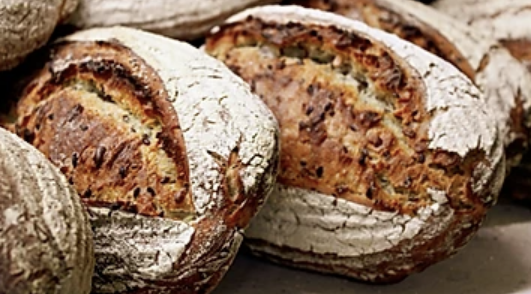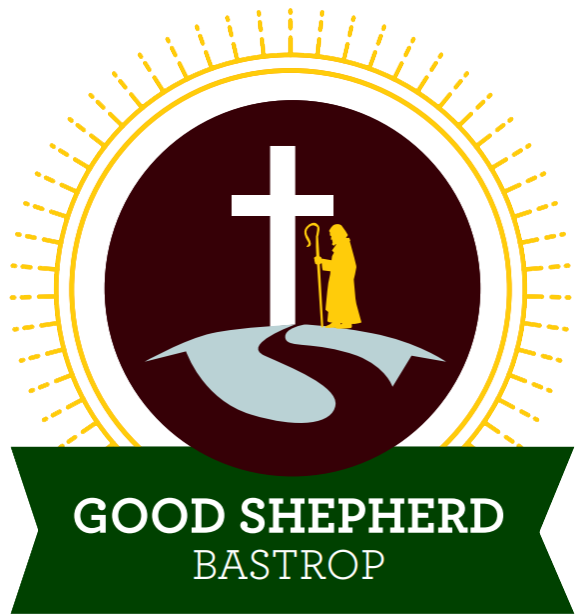What do we have to learn from celebrating Communion in the digisphere? What is lost? What is faithful? These questions and many others are unique to our time. In history, Christians suffering through times of pandemic have not been afforded the opportunity to celebrate Communion over the internet. This means that we get to reflect deeply on what makes Communion a Holy Meal, how we can practice faithfully, and how we can continue to proclaim Christ risen in this time and place. What an opportunity! 
Some important questions:
-
Since we are the body of Christ, since Christ is incarnate in, to, and through us, and since the Holy Meal is Christ himself given for us, How do we maintain the importance of the physical, earthy, tangibility of God while celebrating digital Communion?
-
Since the Holy Meal is a celebration of a real Body—the Body of Christ and the Body of Believers—How do we remember that these bodies are corporeal, that is, REAL while celebrating digital Communion?
-
Since this COVID-19 pandemic is temporary (yes, we will gather together again eventually), How do we continue to prioritize and value the Body who gathers in the same physical space after having celebrated digital Communion?
Some good news:
-
First, the Body of Christ is earthy, physical, and tangible. Such corporeality is true whether we ourselves are physically gathered in the same space or physically scattered, connected only through the digisphere and by the grace of God. Note also that because of the cycling of chemicals throughout our planetary ecosphere, we are physically connected in tremendously intimate ways, even though we might not be aware of this connection in the slightest.
-
Second, our task is to remember (re-member) Jesus in the Holy Meal. Jesus himself and the Community in Christ are physically real whether we ourselves remember this or not. For this reason Jesus instructs us: “Do this in remembrance of me.” Our participation in the Holy Meal does not create something real; instead, it awakens us to that which is most real—the grace of God, the redemption of the whole creation, Christ among us. This is the same awakening experience of disciples on the road to Emmaus (Lk 24).
-
Third, this COVID-19 pandemic is temporary. Through our shared grappling with walking a journey of faith in uncharted territory we are being changed. We are re-examining the fundamentals of our faith. The Reformation inspired a re-examination of the fundamentals of faith. The Scientific Revolution offered an opportunity to re-examine faith which many Christians have resisted and are still resisting. We get the chance to return to the roots of our calling today, here and now. For example, we return to the roots of Communion by considering Martin Luther’s small catechism:
-
“What is the benefit of such eating and drinking [in Holy Communion]?”
The words “given for you” and “shed for you for the forgiveness of sin” show us that forgiveness of sin, life, and salvation are given to us in the sacrament through these words, because where there is forgiveness of sin, there is also life and salvation.
-
“How can bodily eating and drinking do such a great thing?”
Eating and drinking certainly do not do it, but rather the words that are recorded: “given for you” and “shed for you for the forgiveness of sin.” These words, when accompanied by the physical eating and drinking, are the essential thing in the sacrament, and whoever believes these very words has what they declare and state, namely, “forgiveness of sin.”
-
“Who, then, receives this sacrament worthily?”
Fasting and bodily preparation are in fact a fine external discipline, but a person who has faith in these words, “given for you” and “shed for you for the forgiveness of sin,” is really worthy and well prepared. However, a person who does not believe these words or doubts them is unworthy and unprepared, because the words “for you” require truly believing hearts.
Everything from this catechism passage is consistent with digital Communion, at least in theory. Whether or not it is faithful in practice we are finding out. We celebrate digital Communion together remembering at least the following:
-
God is present
-
The community is physically real, as is the Body of Christ
-
God’s promises—for forgiveness of sin and new life—are trustworthy and true
-
Fasting is acceptable and can be very faithful
I look forward to sharing this Holy Meal together in remembrance of Jesus for many weeks, months, and years to come.
-Pr. Travis
